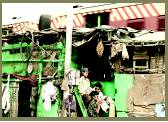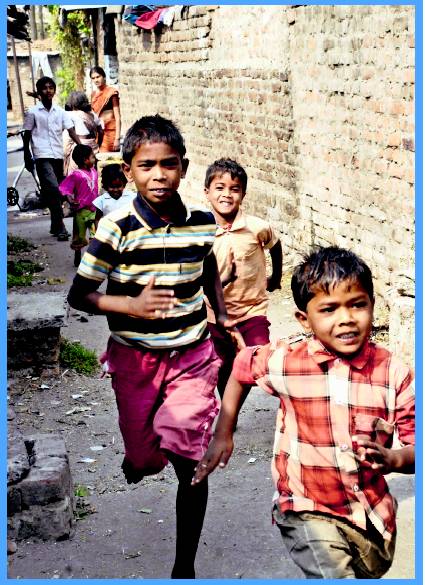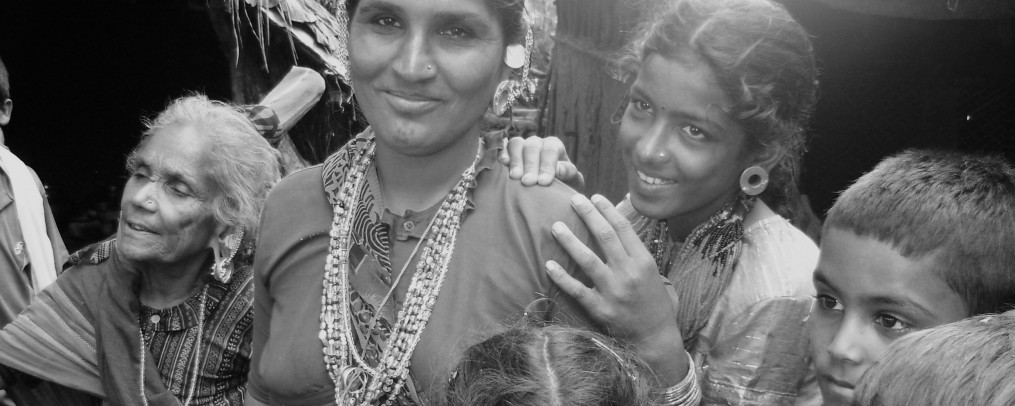A positive, never-say-die attitude helps slum children survive and emerge victorious despite, and not because of, government moves to rehabilitate them. TOI takes a look at what life in the slums of Hyderabad involves
TIMES NEWS NETWORK
Relocation: A flawed concept
Hyderabad: Even as the world wakes up to the living condition of slum dwellers in India,  courtesy ‘Slumdog Millionaire’, and agencies flock Dharavi in Mumbai to develop it, the plight of slum residents in Hyderabad is only deteriorating, rue activists. They say that the “proactive” attempts made by the Andhra Pradesh government towards “altering” the lives of these people have only proved detrimental to slum dwellers, as the government is successfully alienating them from the rest of the city.
courtesy ‘Slumdog Millionaire’, and agencies flock Dharavi in Mumbai to develop it, the plight of slum residents in Hyderabad is only deteriorating, rue activists. They say that the “proactive” attempts made by the Andhra Pradesh government towards “altering” the lives of these people have only proved detrimental to slum dwellers, as the government is successfully alienating them from the rest of the city.
There are 1,210 notified slums in the city, of which an estimated 100 are under threat of relocation, while a few have already been shown the door, locked out of the city in a suburb with no nearby school or job options for slum dwellers.
The central government’s Jawaharlal Nehru National Urban Renewal Mission (JNNURM) was started to remove slums in the state and rehabilitate slum dwellers, but most social workers say that the programme has done more harm than good. On the pretext of rehabilitation, the powerful “real-estate lobby”, in order to grab land in the city, packs off slum-dwellers to far-flung corners of the city. The impact of such moves is the most serious on children, they say.
Relocation, as Rajesh Prabhakar, state manager of CRY, Andhra Pradesh notes, is not only a demolition of dwellings, but also of lives and the worst affected are children who are driven into child labour due to lack of other opportunities.
“This scheme that is meant to provide better conditions for the underprivileged  has only accelerated the drop-out rate amongst slum children. The drive for relocation has led to slum dwellers being forcibly evicted from their homes to obscure areas which have neither basic facilities like schools for children nor transport facilities which allow them to travel to schools in other areas. Under such conditions, most children who earlier went to school have no choice but to drop-out,” explains RTI activist Umesh Varma giving an example of a relocation site in Afzalnagar where a number of children have stopped going to school due to lack of transport facilities.
has only accelerated the drop-out rate amongst slum children. The drive for relocation has led to slum dwellers being forcibly evicted from their homes to obscure areas which have neither basic facilities like schools for children nor transport facilities which allow them to travel to schools in other areas. Under such conditions, most children who earlier went to school have no choice but to drop-out,” explains RTI activist Umesh Varma giving an example of a relocation site in Afzalnagar where a number of children have stopped going to school due to lack of transport facilities.
Activists also say that with relocation done in a haphazard manner, the inhabitants of slums are suddenly uprooted and relocated to unfamiliar places. Children are forced to leave their schools midterm, with no one responsible for getting the slum children admitted to other schools.
The lack of job opportunities for parents in these new locations is also a major concern, as they are often thrust into extreme situations where they have no option but to send their children to look for work elsewhere instead of educating them, says Prabhakar. “Work is difficult to come by in these remote areas so the parents obviously need extra pairs of hands to earn their livelihood. At times like these, they cannot afford to think about education,” he says.
The whole idea of relocation, activists say is a sugar-coated term to cover up a crime of the “land-mafia”. If incidents of eviction of this class to the periphery of the city in the name of rehabilitation continue, the dropout rate amongst slum children will soon reach 100 per cent and the kids will be exposed not only to child labour but also to other physical and social abuse, say activists.
OUR REAL HEROES
Hyderabad: Watching Jamal hop into speeding trains, land in unknown cities and take up odd jobs to earn a meal, in ‘Slumdog Millionaire’, was like revisiting his own days as a child for Oddepally Rajaiah. Though unlike Jamal, Rajaiah opted to run away from home in Warangal at the age of 10 years, driven by his desire to travel around the world, the rest of his story is much the same. Today with a Masters in Social Work, Rajaiah claims that his success is as sweet as his ‘brother’ Jamal’s and equally hardearned.
There are several rags-to-riches stories that Hyderabad is teeming with. Stories like that of Rajaiah who did not became a crorepati overnight, but landed a job that now earns him a princely sum of Rs 13,000 every month. Or that of a domestic child worker R Sridevi who was rescued and later went on to become a national handball player. Then there are more success stories of other deprived children who lived their dream of becoming an “officer” when they landed a government job.
While R Sridevi of Warangal was forced to take up a job as domestic help at an early age to support her old parents and younger brother and give up her love for the game of handball, Rajaiah left home driven by his love for travel. “I would hop into trains randomly, pose as a garbage boy as I never had money for tickets, and get down anywhere I wanted. I have been to Vijaywada, Bangalore, Chennai, Mumbai and finally Hyderabad where my life changed completely,” says the 26-yearold street boy turned social worker.
Having spent much of his childhood washing dishes at roadside eateries or begging at temple steps and sleeping on railway platforms, Rajaiah finally found an NGO-run shelter in the city, wherein he was also encouraged to resume education. A class V dropout, Rajaiah went on to clear his class X and XII, securing 84 per cent in the latter. He then opted for social work as his subject for graduation.
While Rajaiah was able to pursue his dream, for others such as Sridevi, juggling time between domestic work and handball practice was a daily challenge. She would practice in the evenings, after working all day. Her talent was soon noticed and the maid servant later went on to become a national handball champion with aid from various organisations. Sridevi is now reportedly flooded with job offers from different places and is a poster girl of sorts among the underprivileged girls in AP.
Born nearly two decades before Rajaiah or Sridevi, S Israel’s story is no different. Taking the first train out of his slum in Nellore district, the seven-year-old landed on the streets of Kolkata with no money or education. Israel was a rag picker, but with the help of kind soul who took notice of the child, was given both work and education. The 44-year-old now works with the Geological Survey of India.
But each of these success stories are riddled with various hurdles. In the case of Rajaiah, the used clothes that he wore (from the local resource management programme of the NGO) and the broken English that he spoke in was enough to alienate him from the rest of his class in college. At one time, he had even decided to run away from there, but stuck on realising that there were more serious issues in life than bad clothes. Predictably, he is proud of that he stayed on. “It’s been almost two years since I started working and I am greatly satisfied,” he says, adding that working for people from deprived backgrounds like his gives him immense satisfaction.
source: Times of India 25 Feb 2009


Just passing by.Btw, your website have great content!
i think that once in a while, we should do some social works too because we should help other people `